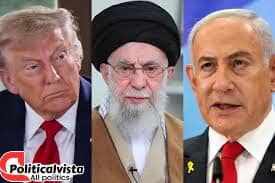
Tensions escalated in the Middle East as the United States launched airstrikes on three Iranian nuclear facilities, sparking widespread condemnation and calls for restraint.
President Donald Trump announced the US attacks, which targeted the Fordow, Isfahan, and Natanz sites, claiming they “obliterated” the facilities. The strikes came after Israel initiated a military campaign against Iran, prompting retaliatory missile attacks and resulting in significant casualties on both sides.
Iran’s Foreign Minister Abbas Araghchi denounced the US actions as a breach of international law, warning of severe consequences. In contrast, Israeli Prime Minister Benjamin Netanyahu praised Trump’s decision, stating it would alter the course of history.
The international community responded with concern, urging de-escalation and diplomacy:
United Nations: Secretary-General Antonio Guterres expressed alarm over the escalation, emphasizing the need for member states to uphold their obligations under the UN Charter and international law.
Iraq: The government warned that the US attacks threaten peace and stability in the Middle East, posing serious risks to regional security.
Russia: Russia’s foreign ministry strongly condemned the US strikes, citing flagrant violations of international law and the UN Charter.
China: China condemned the US strikes, calling for a ceasefire, protection of civilians, and dialogue.
European Union: EU foreign policy chief Kaja Kallas urged de-escalation and a return to negotiations.
United Kingdom: Prime Minister Keir Starmer emphasized the need for stability in the region and urged Iran to return to negotiations.
Other countries: Australia, New Zealand, Mexico, and Venezuela also called for diplomacy and restraint, expressing concern over the escalating situation.
The situation remains volatile, with potential implications for global security and stability.

Be the first to comment